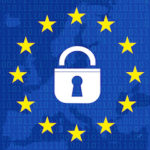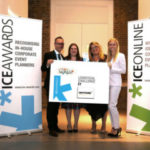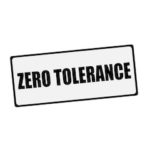
This year marked the 44th anniversary of Comic-Con International, the annual comic-book convention that has brought more than 100,000 attendees to the San Diego Convention Center each of the last five years. As attendance at San Diego Comic-Con and other pop-culture shows has continued to grow, so have incidents of harassment reported by attendees — and some shows have responded by creating new harassment policies or strengthening existing ones, including New York Comic Con (NYCC), which actively involved feminist fan groups in developing a strongly worded new policy for this year’s show.
Meanwhile, San Diego Comic-Con has drawn criticism that its Code of Conduct is vague and ineffectual when it comes to addressing harassment. Geeks for CONsent, a group formed by three avid comic-convention attendees, started a petition calling for a formal anti-harassment policy at Comic-Con 2014, which had received 2,600 signatures by the time the show opened this past July. The group also created an interactive Google Map to track “cosplay” (short for “costume play”) incidents at conventions around the world. Attendees are able to report cases of harassment via Twitter that are then added to Geeks for CONsent’s map. For example, one Comic-Con 2014 attendee tweeted:
@GeeksForCONsent Saw your flier at #SDCC2014. Guy last night kept harassing me, wouldn’t go away. Groped me and PICKED ME UP. I was scared.
Incidents of groping and verbal harassment were also reported via the Google Map from Nottingham Carnival 2014 in Nottingham, England; Anime Oasis 2014 in Boise, Idaho; ColossalCon in Sandusky, Ohio; Metrocon 2014 in Tampa, Florida; and Fanime Con 2014 in San Jose, California. But a major convention notably absent from the list was NYCC 2014, held Oct. 11–15 at New York City’s Javits Center.
There’s a reason for that. ReedPOP, which produces NYCC and is the largest pop-culture-events company in the world, decided to tackle the problem of harassment head on. “Last year we had a couple of incidents that were unusual, and I don’t think we were as prepared as we should have been,” Lance Fensterman, global vice president of ReedPOP, told Convene. “It was also watching the convention scene over the last 12 months. This is an issue that’s growing. You see the number of incidents being reported and then the coverage in the media. It’s not going away, based on our own experience and through watching the community. We want to do a better and more comprehensive job of creating a safe, respectful environment.”
In August, the female-centered comics and pop-culture website The Mary Sue announced a partnership with ReedPOP and solicited reader suggestions for a more comprehensive anti-harassment policy for NYCC. “We talked to The Mary Sue and four or five other industry luminaries to get their input,” Fensterman said. “Just people we know well who have a strong voice within the pop-culture, comedy, and cosplay world.”
NYCC’s revamped harassment policy, written in clear, conversational language, defines harassment as stalking, intimidation, offensive verbal comments, physical assault or battery, harassing or non-consensual photography or recording, sustained disruption of panels, signings, and other events, bathroom policing, and inappropriate physical contact. The policy concludes with a call for common-sense, decent behavior: “ReedPOP’s mission is to create a fun, safe, welcoming, awesome event where Fans of all kinds can come together and celebrate. We want you to not only have the most amazing weekend ever, but to experience it in an environment where you are safe and accepted. As Fans ourselves, we understand the importance of creating a safe space for everyone who attends NYCC. Be Nice, Be Cool, And Respect Each Other.”
Drafting a new anti-harassment policy was just the first step. The official NYCC app allowed any of the 150,500 attendees to report incidents directly to staff and volunteers. “We have 700 to 800 staff, security, and volunteers,” Fensterman said, “but when there’s 100,000 people in the building, that doesn’t feel like that many.”
ReedPOP worked with security personnel ahead of the event to lay out procedures, then conducted staff briefings during the show. The policy was made more prominent on NYCC’s website, and organizers created eye-catching signage to bolster the anti-harassment policy, including “Cosplay ≠ Consent” signs and a more detailed “What to Do” poster. Talking to Convene just before NYCC 2014, Fensterman said he planned to do a post-mortem with his team to discuss whether they can tweak the NYCC policy for their other ReedPOP events.
The new policy was a rousing success on site. Media coverage of NYCC 2014 was uniformly positive, and plaudits abounded within the comics community. “This is terrific,” one attendee posted on Reddit. “We need more ‘DON’T VIOLATE PEOPLE’ warnings. Happy to see this instead of shifting the blame back to the non-consenting with things like ‘Here’s how to avoid getting violated.’”
John Scalzi, a Hugo Award–winning science-fiction novelist and outspoken advocate for stronger harassment policies, wrote an enthusiastic blog post about the new policy on the first day of NYCC, pointing out how precisely defining what constitutes harassment — something that San Diego Comic-Con has failed to do — minimizes the risk of incidents. “I’m very pleased New York Comic Con, for its part, has decided to be on the forefront of anti-harassment policies,” Scalzi wrote. “It’s smart, it makes sense, and it makes me, for one, inclined to come to it again.”



